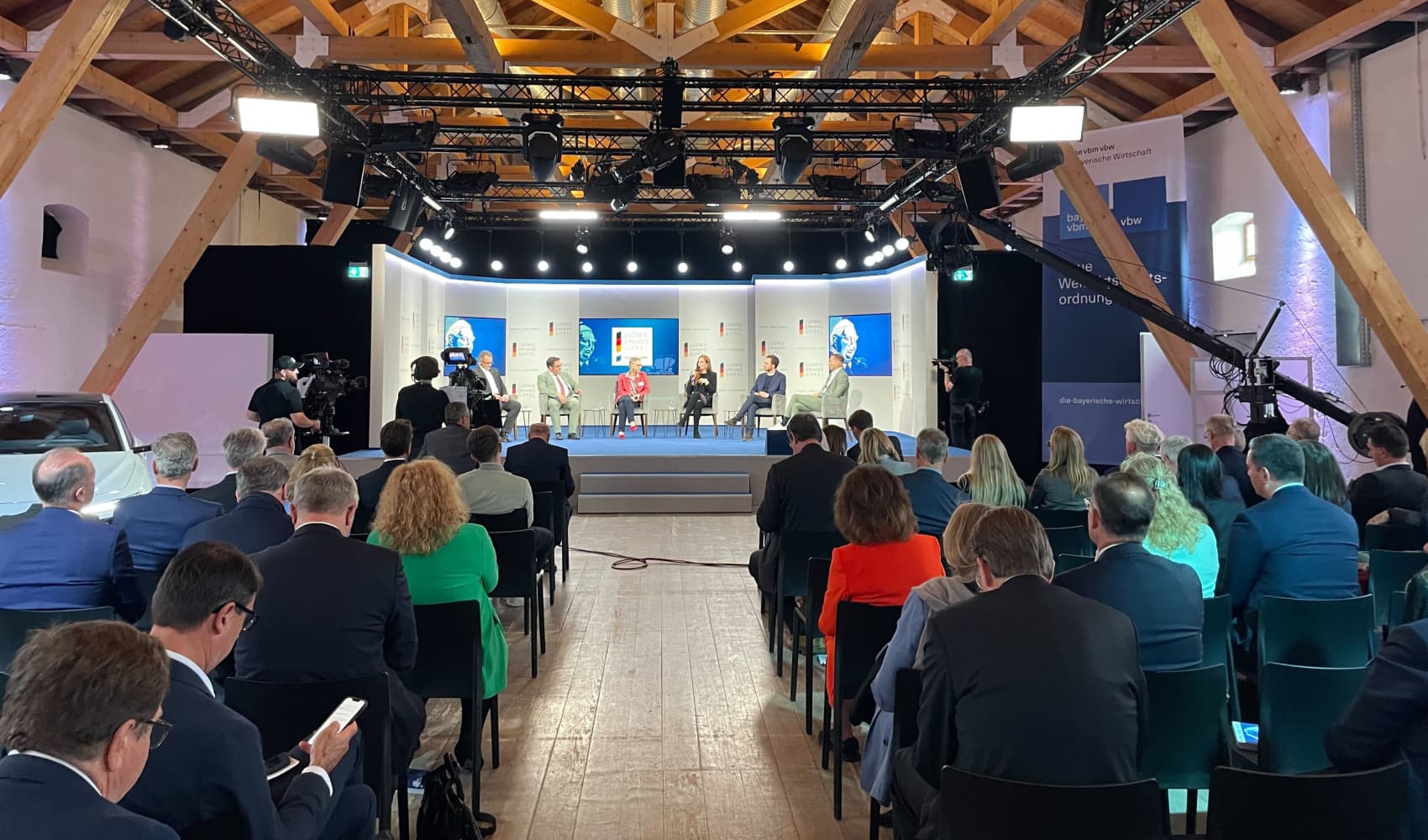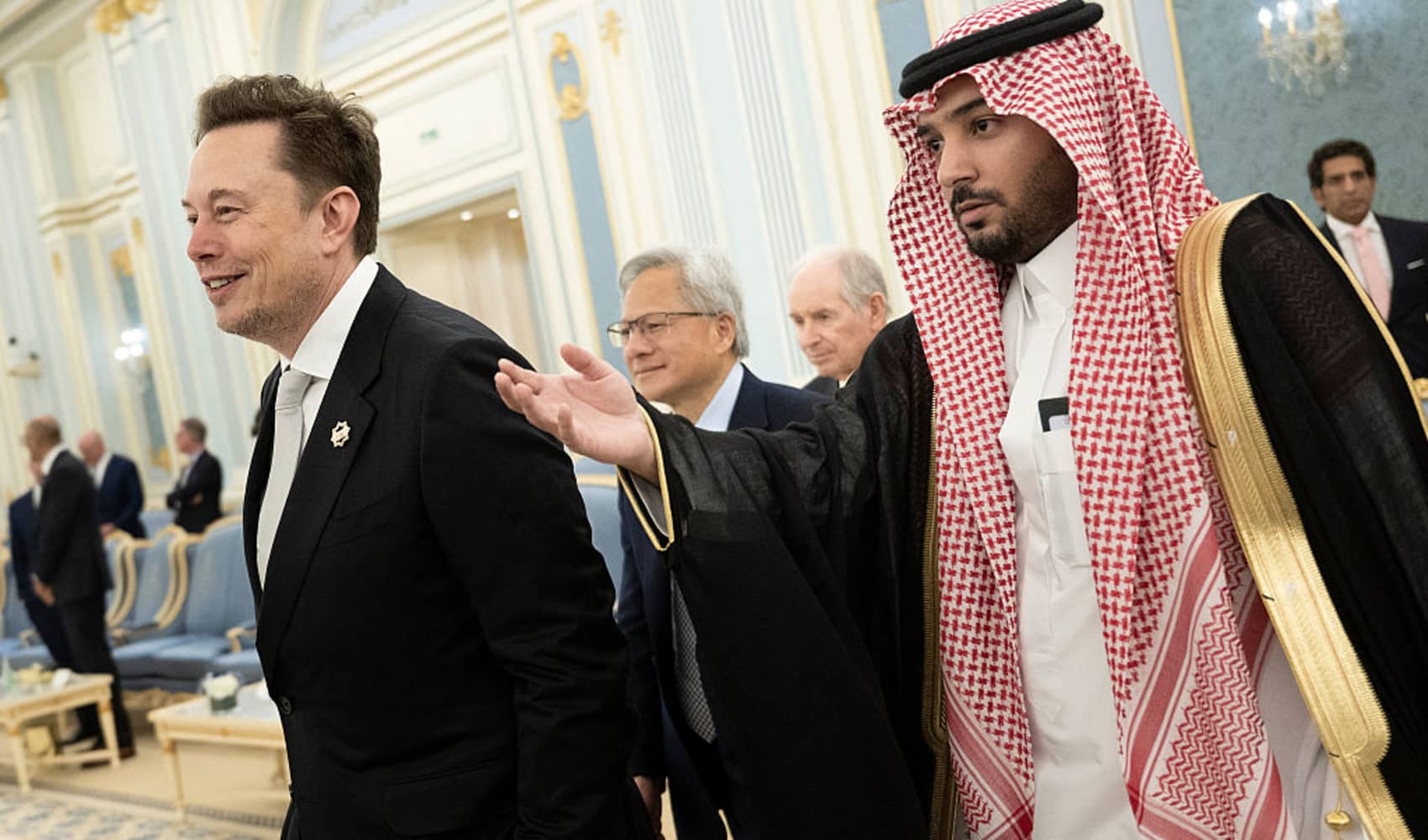German Economic Recovery: Business Leaders Demand Action
‘The Germans are Back:' Business Leaders Demand Action From Berlin
A Call to Action: Germany's Economic Revival
The whispers are growing louder, turning into a chorus: "The Germans are back!" But this isn't just wishful thinking; it's a demand. A demand fueled by cautiously optimistic market sentiment and voiced by Germany's top business leaders, economists, and even politicians. Picture this: a gathering in picturesque Tegernsee, Bavaria, next to its iconic lake. The air is crisp, the scenery breathtaking, but the mood is serious. The future of Germany, Europe's largest economy, hangs in the balance.
They've seen the potential, tasted the promise of a rejuvenated economy, and they’re not willing to let it slip away. Buoyed by recent positive trends, attendees at a recent summit were united in their call for the new administration to step up and honour campaign promises. But what does this mean for the government? And what are the stakes if they fail to deliver?
Tegernsee Summit: A Meeting of Minds (and Expectations)
The Tegernsee summit wasn't just a pretty backdrop; it was a crucial forum. Think of it as a pressure cooker, where expectations were simmering and the heat was on. This wasn't a casual chat over coffee; it was a strategic meeting where key players laid down the gauntlet. They’re making it clear: the time for talk is over; it’s time for action.
The Bavarian Backdrop: More Than Just Scenery
Why Tegernsee? Perhaps the serene beauty of the lake and mountains provided a stark contrast to the urgency of the discussions. Or maybe it served as a reminder of the beauty and prosperity Germany is capable of achieving. Whatever the reason, the location added a layer of significance to the event.
The New Administration: Promises, Promises
Every new government arrives with a bundle of promises, carefully crafted to win votes and inspire hope. But how often do those promises translate into tangible results? This is the question German business leaders are asking. They've heard the pledges; now they want to see concrete steps towards economic growth and stability. Are they setting the bar too high? Perhaps. But they argue that Germany's future depends on it.
Holding Feet to the Fire: No Room for Error
The message to the new administration is clear: there’s no honeymoon period. No extended grace period. No room for excuses. Business leaders warned against a “lazy summer” for the new administration. Any missteps, any delays, could jeopardize the fragile recovery and derail Germany's economic resurgence.
Economic Headwinds: The Challenges Ahead
Germany, like the rest of the world, faces significant economic headwinds. From rising energy costs to supply chain disruptions and global inflation, the challenges are numerous and complex. Navigating these turbulent waters requires skillful leadership, decisive action, and a clear vision for the future. Can the new administration deliver?
Inflation: The Silent Threat
Inflation remains a major concern, eroding purchasing power and impacting consumer confidence. Containing inflation requires a multi-pronged approach, including fiscal responsibility, supply-side reforms, and close cooperation with international partners. The German government must prioritize this issue to protect the economy from further damage.
The "German Mittelstand": The Backbone of the Economy
The “Mittelstand,” Germany’s small- and medium-sized enterprises, form the backbone of the country's economy. These companies are the engine of innovation, job creation, and export growth. Supporting the Mittelstand is crucial for long-term economic prosperity. What specific measures can the government take to help these businesses thrive?
Supporting Small Businesses: A Recipe for Success
Policies that reduce red tape, promote innovation, and provide access to financing are essential for supporting small businesses. Furthermore, investing in education and skills training will ensure that the Mittelstand has access to a skilled workforce. A thriving Mittelstand means a thriving Germany.
Investment and Innovation: Fueling Future Growth
To remain competitive in the global economy, Germany must invest heavily in innovation and new technologies. This includes supporting research and development, fostering a culture of entrepreneurship, and creating a regulatory environment that encourages innovation. Are German businesses known for innovation? Yes, and the government needs to keep fueling that fire.
The Digital Revolution: Embracing Change
Embracing the digital revolution is critical for Germany's future competitiveness. This requires investing in digital infrastructure, promoting digital literacy, and supporting the development of new digital technologies. Germany must become a leader in the digital economy to secure its long-term prosperity.
Energy Security: A Top Priority
The energy crisis has highlighted the importance of energy security. Germany must diversify its energy sources, invest in renewable energy, and reduce its dependence on fossil fuels. This is not only crucial for economic stability but also for environmental sustainability. How can Germany achieve energy independence while transitioning to a green economy?
Renewable Energy: The Path Forward
Investing in renewable energy sources, such as solar, wind, and hydropower, is essential for achieving energy security and reducing carbon emissions. Germany has the potential to become a leader in renewable energy technologies, creating new jobs and driving economic growth.
Geopolitical Landscape: Navigating Uncertainty
The global geopolitical landscape is increasingly uncertain, with conflicts and tensions creating instability and economic disruption. Germany must play a leading role in promoting peace and stability, strengthening international cooperation, and defending its interests. How can Germany navigate these complex challenges while maintaining its economic strength?
Strengthening International Partnerships: Unity is Strength
Strengthening partnerships with like-minded countries is essential for addressing global challenges. Germany must work closely with its allies to promote free trade, combat climate change, and maintain international security. A united front is the best defense against global instability.
Bureaucracy and Red Tape: Streamlining Efficiency
One of the biggest challenges facing German businesses is excessive bureaucracy and red tape. Streamlining regulations, simplifying administrative procedures, and reducing the burden of compliance are essential for improving competitiveness and attracting investment. Is German bureaucracy holding back the economy? Many business leaders believe so.
Digitalization of Government Services: Efficiency Through Technology
Digitalizing government services can significantly reduce bureaucracy and improve efficiency. By making it easier for businesses and citizens to access information and complete transactions online, the government can save time and money, boosting productivity and economic growth.
Skills Gap: Investing in Human Capital
A growing skills gap threatens Germany's competitiveness. Investing in education, vocational training, and lifelong learning is crucial for ensuring that the workforce has the skills needed to succeed in the 21st-century economy. How can Germany bridge the skills gap and prepare its workforce for the future?
Vocational Training: A Path to Success
Strengthening vocational training programs can provide young people with the skills they need to enter the workforce and contribute to the economy. Germany has a long tradition of vocational training, but it needs to be modernized and adapted to meet the changing needs of the labor market.
Sustainability: Balancing Growth and Responsibility
Sustainability is no longer just a buzzword; it’s a necessity. Germany must balance economic growth with environmental responsibility, promoting sustainable business practices, reducing carbon emissions, and protecting natural resources. Can Germany be a global leader in sustainability while maintaining its economic competitiveness?
Circular Economy: Waste Not, Want Not
Adopting a circular economy model, where resources are reused and recycled, can reduce waste, conserve resources, and create new economic opportunities. Germany can become a leader in the circular economy by promoting innovation, investing in recycling infrastructure, and creating incentives for businesses to adopt sustainable practices.
Labor Market Reforms: Flexibility and Opportunity
Labor market reforms are needed to create a more flexible and dynamic labor market. This includes reducing regulations, promoting job creation, and ensuring that workers have the skills they need to adapt to changing economic conditions. How can Germany create a labor market that is both flexible and fair?
Encouraging Entrepreneurship: Fostering Innovation
Creating a supportive environment for entrepreneurs is essential for fostering innovation and job creation. This includes reducing red tape, providing access to financing, and promoting a culture of entrepreneurship. Germany can become a hub for startups and innovation by supporting its entrepreneurs.
'The Germans are Back': A Call to Action
The phrase "'The Germans are back'" is more than just a slogan; it's a call to action. It's a challenge to the new administration to deliver on its promises, address the challenges facing the economy, and create a brighter future for Germany. The business leaders have spoken. Now it's time for the government to listen and act.
Conclusion: Delivering on the Promise
The Tegernsee summit served as a pivotal moment, signaling a shift in expectations and a demand for concrete action from the German government. Buoyed by positive market sentiment, business leaders are urging the administration to seize the opportunity to revitalize the economy. The stakes are high, and the pressure is on. A lazy summer is not an option. The future of Germany's economic resurgence hinges on the government's ability to deliver on its promises, address key challenges, and create an environment conducive to growth, innovation, and sustainability. The world is watching, and Germany's business leaders are ready to hold the new administration accountable. The message is clear: it's time to act.
Frequently Asked Questions
Q1: What is the significance of the Tegernsee summit?
The Tegernsee summit provided a crucial platform for German business leaders, economists, and politicians to discuss the country's economic future and urge the new administration to take decisive action. It was a forum for setting expectations and holding the government accountable.
Q2: Why are business leaders warning against a "lazy summer" for the government?
Business leaders fear that any delays or missteps by the new administration could jeopardize Germany's fragile economic recovery. They believe that immediate action is needed to address key challenges and capitalize on the positive market sentiment.
Q3: What are the main economic challenges facing Germany?
Germany faces several economic challenges, including rising inflation, supply chain disruptions, energy security concerns, a skills gap, and excessive bureaucracy.
Q4: How important is the "Mittelstand" to the German economy?
The "Mittelstand," comprising small- and medium-sized enterprises, is the backbone of the German economy. These companies are responsible for a significant portion of job creation, innovation, and export growth.
Q5: What steps can Germany take to ensure its long-term economic prosperity?
Germany can ensure its long-term economic prosperity by investing in innovation, promoting digital transformation, ensuring energy security, streamlining regulations, addressing the skills gap, and fostering a sustainable economy.

